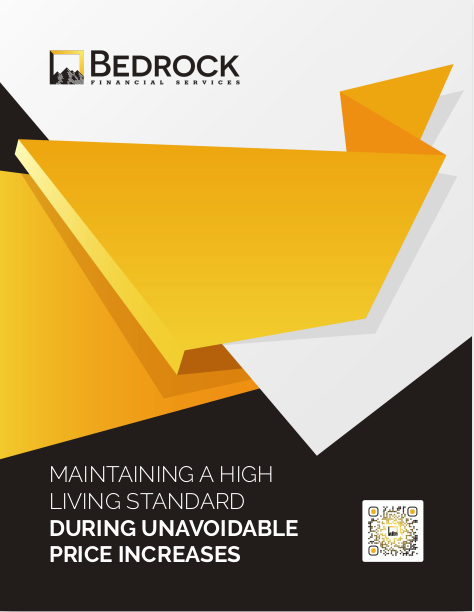Key Takeaways
-
The trust-building process doesn’t require dramatic gestures. Instead, the right everyday language builds credibility, assurance, and connection that compound over time.
-
As an independent insurance agent, your use of small, consistent phrases can shape how clients perceive your reliability, empathy, and professionalism—from the very first interaction.
Why Language Matters More Than You Think
You already know that trust is essential in your business. But what you may not realize is how much of that trust is shaped not just by what you do, but by what you say—and how you say it.
Clients make snap judgments based on your tone, word choices, and even the rhythm of your speech. They’re not just listening for answers. They’re listening for alignment, reassurance, and signs that they made the right decision to sit down with you.
That’s where small phrases come in. These are not scripts or buzzwords. They’re subtle, sincere cues that build trust in moments most people overlook.
The First 60 Seconds Matter
First impressions aren’t made during your formal pitch. They happen in the first 30–60 seconds of interaction—before you’ve even talked about policy details. This early window is when clients assess whether you’re confident, competent, and calm.
Here are a few phrases that create immediate psychological safety:
-
“Let’s take a moment to make sure we’re both clear on what you need.”
-
“You’re not alone in feeling unsure—a lot of clients tell me the same thing at first.”
-
“This will be a conversation, not a presentation.”
These aren’t just polite courtesies. They signal that you’re client-centered, patient, and focused on dialogue—not just selling.
Phrases That Reinforce Your Role as a Trusted Advisor
Throughout your relationship with a client, you need to reinforce one idea: you’re here for the long haul. Not just to close a sale, but to serve.
Here’s how small phrases can support that idea:
-
“Here’s what I’d recommend if you were my own family member.”
-
“If your situation changes six months from now, we can revisit this.”
-
“It’s okay if you need time. I’ll be here when you’re ready.”
These types of statements show that you’re not pushing a transaction. You’re building a relationship, with flexibility and ongoing support.
When Clients Are Hesitant or Skeptical
Most clients come with reservations, especially in a market as complex as insurance. They may have heard conflicting advice, had a poor experience in the past, or simply feel overwhelmed by the options.
Your job is to make space for that uncertainty—without escalating it.
Try these subtle, powerful phrases:
-
“That’s a very fair question.”
-
“I appreciate you being honest about that concern.”
-
“Let’s walk through this together step-by-step.”
Each of these communicates patience, validation, and a readiness to work through complexity without judgment.
During Follow-Ups and Long-Term Contact
Trust isn’t built in a single meeting. It deepens with consistency over time—especially in how you communicate after the sale.
The language you use in emails, check-ins, and renewal conversations matters just as much as your opening pitch.
Consider using:
-
“Just wanted to check in and see how things are going—no action needed unless you’d like to revisit something.”
-
“I was thinking about your situation the other day, and something came to mind.”
-
“You don’t need to respond right away—this is just to keep you informed.”
These are simple lines that show you’re thoughtful, proactive, and not just reaching out when you need something.
Phrases That Ease Complexity Without Oversimplifying
Insurance can be intimidating. But the solution isn’t dumbing things down—it’s guiding clients clearly and respectfully.
Use language that honors their intelligence while reducing overwhelm:
-
“This part can seem confusing at first, but I’ll make sure it’s clear.”
-
“There are really only three things to focus on right now.”
-
“Here’s how I like to explain this—it’s not perfect, but it helps most people get their head around it.”
These phrases strike the balance between clarity and complexity. They make you a translator, not a lecturer.
The Words You Avoid Also Matter
Sometimes what you don’t say is just as important. Avoiding certain industry jargon, dismissive tones, or phrases that imply pressure can help prevent distrust.
Be cautious of phrases like:
-
“You have to act now or you’ll miss out.”
-
“This is the best plan for everyone.”
-
“That’s just how it works.”
These suggest a lack of personalization or a hidden agenda. Even if you mean well, they can push a client away.
Instead, default to words that open the door for questions and curiosity:
-
“Here’s what I’d suggest based on your goals.”
-
“Let me know what part you’d like to look at in more detail.”
How to Develop Your Own Phrasing Style
You don’t need to memorize a list of lines. The goal isn’t to sound like anyone else—it’s to develop a language style that feels natural to you, and safe to your clients.
Here’s how to refine your own phrasing habits:
-
Record yourself during client meetings (with permission). Review your tone, pacing, and word choices.
-
Reflect weekly on how your conversations went. When did a client visibly relax or open up?
-
Test variations of a phrase to see what feels most authentic and effective.
-
Practice aloud outside of client meetings. Rehearse how you explain complex terms in simple, conversational ways.
The point is to build muscle memory—so that empathy, clarity, and calm confidence come naturally when you need them most.
You Don’t Need to Be Perfect—You Just Need to Be Intentional
Clients don’t expect perfection. They expect presence. The goal of trust-building language isn’t to eliminate all uncertainty or discomfort. It’s to show that you can hold space for it and stay steady.
What you say—and what you leave unsaid—sends signals. And those signals add up.
A few calm, reassuring phrases in the first few minutes can shape how someone sees you for years. A thoughtful follow-up message months later can quietly re-confirm that initial impression. And even one sentence that says “I see you” or “I’m not rushing you” can turn a skeptic into a loyal client.
The Phrases That Keep Trust Growing
At the end of the day, trust is cumulative. It grows when clients feel understood, respected, and remembered—not just once, but consistently.
We encourage you to explore what that looks like in your practice. You don’t need a total script overhaul. Just a few tweaks in how you greet, guide, and follow up with your clients can radically shift the relationship.
And if you’re looking for the kind of support that helps you develop those habits faster, that’s where we come in. At Bedrock Financial Services, we help independent agents like you sharpen your communication, systematize your outreach, and scale trust in every part of your business.
Sign up today to learn how we can help you build stronger client relationships—one quiet phrase at a time.







